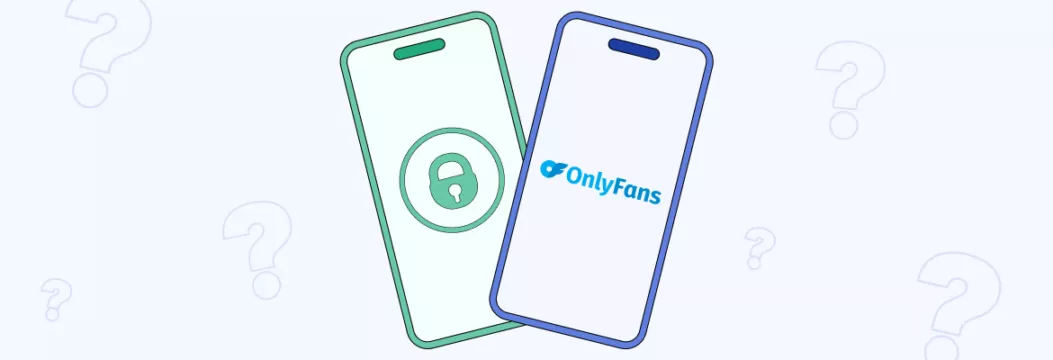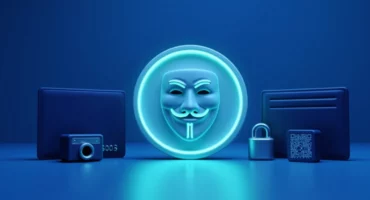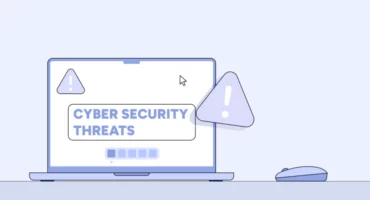Is OnlyFans Safe for Subscribers and Creators? Examining the Platform’s Security Measures
Are your personal details really safe? Is OnlyFans (OF) a secure platform for sharing content? These are questions that often weigh on the minds of OnlyFans creators and subscribers. In this article, we’ve gathered essential information about OnlyFans’ security and privacy measures to help you understand whether it’s a safe space. Plus, we’ll share some valuable tips on how to stay anonymous while using the platform. Let’s hit it!

OnlyFans security: A quick look
In 2021, a former OnlyFans employee revealed a concerning issue: some ex-staff members still had access to Zendesk, the customer service software that OnlyFans uses to handle creator and user inquiries. This access allowed former employees to monitor and respond to customer support tickets that might contain sensitive information like credit card details, driver’s licenses, passports, full names, addresses, bank statements, KYC selfies (where creators hold up an ID next to their face for verification), and model release forms.
This makes up one of the significant security concerns surrounding OnlyFans and prompts questions about the platform’s overall safety. So, let’s delve deeper into OnlyFans’ content protection and explore other safety measures in place.
How OnlyFans works
To understand the dangers of OnlyFans and how to stay safe, let’s first look at how it works.
OnlyFans acts like a social media platform where creators share videos, photos, and text on various topics like fitness or art. However, it’s most known for adult content.
Users can subscribe to creators, paying a monthly or yearly fee set by the creator. Besides public content, creators can offer private pay-per-view videos, ranging from personal advice to greetings, with a minimum fee of $5.
Now onto the specifics.
Is OnlyFans safe to use? Overview of the platform
Yes, OnlyFans is mostly safe. It’s a legitimate social media platform, just like others you’ve used. But like with any social network, there are some risks, especially because it involves money through subscriptions and lots of personal data. As long as you understand those risks (stay tuned for those) and do your best to stay safe (stay tuned x2), you should be good.
Frst, let’s check out how OnlyFans keeps things safe and private. We looked at OnlyFans’ Safety & Transparency Center, and here’s what we found:
- Age & identity verification. To join, you need to show your government ID, take a selfie, and prove your address. You also have to be at least 18 years old. OF collect more than nine pieces of personal info and documents, including a valid photo ID and bank info and also constantly re-check this info.
- Protecting personal info. OnlyFans says they protect personal data by encrypting it and making backups. However, they don’t provide more details about the type of encryption or extra protection measures.
- Removing copyright infringing or illegal content. Creators can report and remove content that breaks copyright or the law using DMCA takedown procedures.
- Independent review. OnlyFans hired an outside party called the “Monitor” to check how safe their platform is. They look at policies, procedures, and employees to make sure everything’s in line with the law and good practices.
- Stopping financial scams. OnlyFans staff keep an eye out for signs of fraud and money laundering, like lots of payment card tries with different names, fast purchases, or if the same IP address is used by both fans and creators.
Is OnlyFans private? Examining its privacy policy
OnlyFans collects a large share of personal information from both Creators and Subscribers/Fans. However, its data collection practices don’t look that different from other social media platforms.
Nevertheless, when you decide to close your OnlyFans account, they retain your personal information for 6 months. Some data might be kept longer, as certain laws may require them to hold onto specific information for up to 7 years.
What personal data does OnlyFans collect?
Below we outline what kind of information OnlyFans gathers from Creators and Fans, based on the platform’s Privacy Policy. Overall, OnlyFans collects much more data from Creators compared to Subscribers.
Here’s what data OnlyFans collects from Creators:
- Full Name
- Alias (if applicable)
- Residential Address
- Country of Residence
- Email Address
- Telephone Number
- Government ID Copy
- “Selfie” with ID
- Social Media Handles
- Signature on Release Forms
- Profile Name
- Password
- Avatars & Headers
- Subscriptions, Subscribers, Referrals
- Posts
- Comments
- Chat Messages
- Customer Support Queries
- Payment Card Details
- Billing Address
- Wallet Funds
- Bank Account Info
- Pay-out Country
- Corporate or Business Entity Info
- Social Security Number, W-9 Form, 1099-MISC Form, 1099-NEC Form (US Creators)
- Earnings
- Pay-out Requests
- Payments
- Failed Payments
- IP Address
- ISP
- Device Details
- Browser Info
- Usage Data (including cookies)
And here’s the data collected from Fans:
- Email Address
- Telephone Number
- Profile Name
- Password
- Avatars & Headers
- Subscriptions
- Comments
- Chat Messages
- Customer Support Queries
- Payment Card Details
- Billing Address
- Wallet Funds
- Payments
- Failed Payments
- IP Address
- ISP
- Device Details
- Browser Info
- Usage Data (including cookies)
Does OnlyFans share user data with third parties?
Yes, OnlyFans shares user data with:
- Third-party service providers for IT, payment processing, customer support, and more.
- Professional advisers such as legal advisors and accountants.
- Relevant third parties in potential sale, merger, or restructuring situations.
- Group companies for business coordination.
- Relevant authorities, regulators, and organizations in response to lawful requests.
Is OnlyFans anonymous?
Since both creators and subscribers must provide identification and payment details that verify their real identities, they can’t stay anonymous – at least to the OnlyFans team. However, both creators and subscribers can keep their identity secret by using a different name or email address.
So while some creator-fan interactions can be confidential, OnlyFans doesn’t allow complete anonymity for either side.
With OnlyFans’ security and safety measures been discussed, let’s see other side of the coin — that is, what dangers can lurk on the platform for creators and subscribers separately and what specific protections are in place.
Dangers of OnlyFans for creators
OnlyFans creators can face various security issues, including:
- Personal account hacks. Just like any other social media platform, OF isn’t immune to those. These hacks involve unauthorized access to a creator’s account, potentially putting their personal information, content, and earnings at risk. Several creators have reported such incidents, with hackers even changing the associated email and making purchases.
- Content leaks and copyright infringement. OnlyFans content leaks are widespread on the Internet. These occur when subscribers capture content and share it elsewhere without permission. Data breaches can also lead to the exposure of vast amounts of stolen adult content, and here we mean terabytes.
- Online harassment and privacy concerns. One of the most common challenges creators face is online harassment and spying, especially those with a large fan base and overly enthusiastic admirers. Some creators have even experienced extreme cases of stalking, crossing international borders.
Pro tip: Strengthening your digital security is always a good practice when you’re active online. This becomes crucial if you’re posting publicly and interacting with subscribers you don’t personally know. We recommend using a virtual private network (VPN) to hide your IP address and location, as well as the Antivirus software to protect your devices from hacking and malware. Read along to find out more.
How does OnlyFans protect content?
OnlyFans takes some steps to protect its users from potential risks. It offers two-step verification and tools to control access, like limiting direct messages, turning off comments, or making profiles private.
Regarding OnlyFans content protection, the platform:
- Provides a free watermarking service to creators. Watermarks are digital text on content to prevent unauthorized use.
- Allows creators to report copyright issues under DMCA for free. Those outside the USA have their content protected by international copyright laws.
- Regularly scans the Internet to find and address websites hosting stolen content from OnlyFans creators.
Recap: Is OnlyFans safe for creators?
OnlyFans offers some protection for creators, like content watermarking and copyright reporting. However, it’s not without risks, as account hacks, content leaks, and online harassment can still happen. So, OF creators should stay cautious online and use digital security tools for protection.
Dangers of OnlyFans for subscribers
As for fans, some common concerns include:
- Confidentiality of their personal info, like a real name, email address or card number.
- Hacking. Subscribers’ accounts store payment info, making them susceptible to hacking through phishing and other types of attacks.
- Phishing attacks. Hackers use fake websites resembling OnlyFans to trick users into revealing login details.
- Scams. Scammers pose as genuine OnlyFans creators, using stolen images to deceive subscribers.
When it comes to subscribing, be cautious — for example, before committing to a yearly plan, consider starting with a monthly subscription to ensure you’re following the right person.
As for protection against data leaks and hacking, consider going for a digital security tool like VeePN. Here’s how it’ll keep you safe online:
- Blocks malicious websites, trackers, and ads with its NetGuard feature.
- Keeps data secure with the most modern VPN encryption AES-256 standard.
- Helps you remain anonymous online by hiding your IP address and changing your virtual location.
- Provides user-friendly Antivirus on Windows & Android that scans your device for viruses and other malware.
Choose a risk-free plan backed up by a money-back guarantee and secure your digital life for good.
Recap: Is OnlyFans safe for users?
While OnlyFans may pose risks like personal info exposure, hacking, phishing, and scams, staying vigilant and using online security tools can help ensure your safety.
How to stay anonymous on OnlyFans
Last but not least, although complete anonymity online isn’t possible, you can take measures to improve it. Here’s how:
- Use a pseudonym. Create a username that doesn’t reveal your real identity.
- Avoid sharing personal information. Don’t disclose your real name, location, or other identifying details in your profile.
- Create strong passwords. It should be difficult to guess and different from those on any other platforms you use.
- Set up two-factor authentication (2FA).
- Go to Settings while logged into your OnlyFans account.
- Choose Account > Two-Step Verification.
- Set up 2FA by either connecting via your authenticator app or SMS.
- Use a VPN. VeePN can hide your IP address and location, adding an extra layer of anonymity, and encrypt your data with the strongest encryption method.
- Secure your payment method. Use secure payment options and consider using prepaid cards to prevent linking your financial information to your account.
- Limit interactions. Be mindful of who you interact with and what you share in chats and comments.
Consider a prepaid SIM card to use as a throwaway phone number. You can use it on an older phone to act as an extra layer of security.
FAQ: Is OnlyFans Safe?
The risks of OnlyFans include potential exposure of personal information, content leaks, hacking, online harassment, phishing attacks, and scams. Learn how to stay safe from them in this blog post.
Yes, you can be tracked on OnlyFans to some extent because both creators and subscribers must provide identification and payment details that verify their real identities. However, you can use a pseudonym and take measures to improve your online anonymity. Find out more in our article.
Complete anonymity on OnlyFans isn’t possible due to identity verification requirements. However, you can enhance your privacy by using a pseudonym, avoiding personal information sharing, and using a VPN for added protection.
VeePN is freedom




